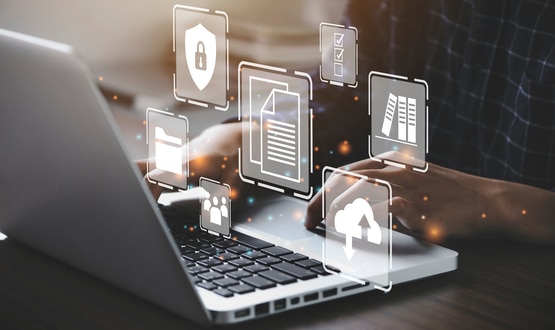RFID and care records could be linked
- 21 March 2007
A future in which data from hospital systems, including the Care Records Service (CRS), can be integrated with radio frequency identification (RFID) tags used to track patients and equipment in hospitals was spelled out at Healthcare Computing in Harrogate this week.
Peter Flood, national accounts manager for Bluestar Technologies, a UK-based RFID specialist, said that the benefits of RFID were becoming more obvious in the healthcare sector and more work should now be done on the collection and dissemination of information collected from computer systems.
His comments follow last month’s strategy document from the Department of Health looking at the use of smart wireless wristbands and barcode labelling technologies, which claimed that auto-identification and data capture (AIDC) technology has the potential to tackle mismatching errors in particular, as well as bringing other efficiencies and cost savings.
Flood said: “RFID is a rapidly growing and diversifying market. Over three billion RFID tags have been sold, one third of which were sold last year, and the technology is revolutionising the supply chains and processes of delivering information. We now need to collect and disseminate that information.
“Looking ahead, I believe that it will be possible to integrate with other systems including the Care Records Service, A&E, theatre systems and asset management systems and keep a detailed patient and equipment record whilst they are in a hospital environment.”
At present errors, many of which are caused by getting the patient identity wrong, cost the NHS around £2 billion in extra bed days. Flood said that the use of RFID could help solve a number of problems.
“RFID would help stop wasted time looking for items and patients, it can help prevent telephone interruptions from staff trying to find things, it can help prevent the need for manual interventions to record patient or item movements.
“It also helps with identification and verification, provides more real-time information for hospitals and provides asset management and utilisation, preventing medical equipment worth millions being lost.”
Overall, he felt that it would help meet the requirements of patients, assets and security.
“The technology can help with a number of issues including providing theatre staff with the immediate location of an item, planning and utilisation of equipment, patient location and management.
“However, in its own right there are no immediate benefits to the system unless it is integrated with the work flow and is used for identifying new procedures. Many people are embracing RFID including shops, hospitals and even the London Underground. I believe that by integrating the right data to the right devices, this technology can be a useful asset to the healthcare industry.”




